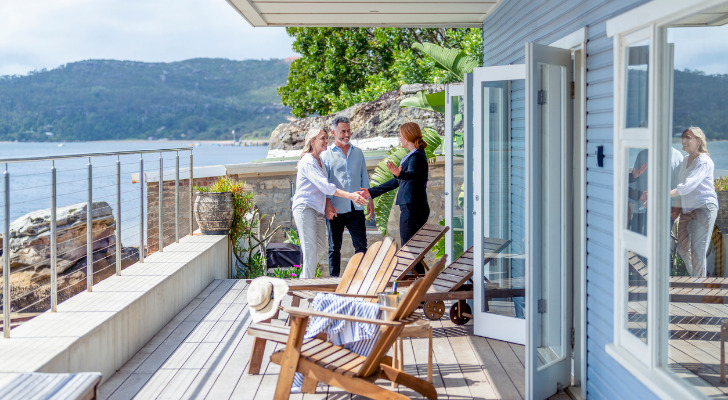Airbnb has been a game-changer for the travel industry, revamping the way people book stays away from home. It’s also created opportunities for everyday people to make passive income with short-term rentals. Is an Airbnb investment right for you? Taking a closer look at the advantages and disadvantages can help you to decide.
A financial advisor can help you with real estate investing.
What Is Airbnb Investment?
Airbnb investing is a real estate investing strategy that centers on making profits from temporary rentals. Instead of buying a single-family or multi-family home and renting it out to an individual or family for an extended term, Airbnb investors make money by renting properties or individual rooms for days or weeks at a time.
Airbnb investors might own one property or several and they may rent them out year-round or only during certain parts of the year. For example, you might buy a beach house and rent it out to Airbnb guests for a week at a time during the peak summer season.
When Airbnb first started, it wasn’t necessarily meant to be used as an investing strategy. Instead, it was intended to be a resource for travelers seeking affordable accommodations and property owners who wanted to make a little extra money. Today, however, there are numerous investors generating full-time income from owning Airbnb properties.
Airbnb Investment vs. Traditional Rental Properties

There’s some overlap between Airbnb rentals and traditional rentals since they both can be used to generate income. However, there are some key differences to note between Airbnb investing vs. traditional property investments.
- Airbnb is primarily designed for short-term rentals while traditional rentals are driven by long-term occupancy.
- The Airbnb platform makes it relatively easy to rent out your property for the short term, while screening for long-term rental tenants may be more time-consuming and costly.
- Local zoning ordinances may dictate whether you can use a property for short-term Airbnb rentals.
- Upfront costs for an Airbnb may be higher if you have to furnish and decorate it to make it appealing to renters.
- Ongoing costs for an Airbnb may be higher if you’re having to make frequent repairs because of unruly renters.
Managing multiple Airbnb properties may also be more time-intensive than owning a single rental property. The larger your portfolio of properties, the more work you’ll likely have to put in unless you’re willing to spend some of your rental income to hire a property management company.
How Much Money Can You Make With an Airbnb Investment?
The amount of money you can make with an Airbnb property can depend on several things. Some of the factors that can influence your profits include:
- Where the property is located
- How in-demand short-term rentals are for that area
- The condition of the property
- The number of guests it can accommodate
- How frequently you list it for rentals on Airbnb
- What you pay for maintenance costs
- Where you set your rental rates
Can an Airbnb make more than a traditional rental property? It’s absolutely possible, depending on what rates you charge to rent it out. Using the beach house as an example once again, you might be able to charge $1,500 to $2,000 a week during the summer months, depending on where it’s located. That’s $6,000 to $8,000 in income per month.
A traditional rental property, on the other hand, might produce $1,500 in rental income each month. However, that income can be stable all year long. With Airbnb, there’s less predictability when it comes to keeping the property rented. If you hit a dry spell because people are traveling less or competitors are offering better value, for example, then your income could disappear overnight.
Pros and Cons of Airbnb Investments
There are advantages and disadvantages associated with owning an Airbnb rental property as an investment. It’s important to weigh them both when considering whether Airbnb investment is a path you want to go down.
Here are some of the pros of using an Airbnb to create rental income:
- It’s a flexible way to make money passively outside of a traditional job.
- Profit potential could be quite high if you have an in-demand property and you’re able to keep it occupied most of the time.
- Marketing your property to renters can be easier since Airbnb provides you with the tools to do it.
- You can use the home yourself when the property is not being rented out, which is great if you’d like to have a vacation spot to get away to.
- Owning multiple Airbnb properties means you’re not dependent on a single tenant for rental income.
Now, here are some of the disadvantages to keep in mind:
- Expenses may be higher if you’re having to make repairs to the property regularly, furnish multiple properties or provide access to amenities, like premium Wi-Fi.
- Local laws may limit the number of days you’re able to rent out your property on Airbnb each month or year.
- Higher vacancy rates can mean more irregular income.
- Poor reviews could hurt your ability to attract new guests to the property.
- Managing multiple Airbnb properties could be just as much work as having a full-time job.
It’s also important to consider how people seeking short-term rentals perceive Airbnb.
In the early days, Airbnb was a cost-saving alternative to staying in a hotel. More recently, Airbnb property owners have seen an increasing backlash among guests who question how much value they’re getting in exchange for what they’re paying. For instance, it’s become the norm among some Airbnb owners to expect guests to take out the trash, wash bed linens and even mow the grass while continuing to charge steep cleaning fees.
How to Buy a Property for Airbnb Investment

If you’re interested in owning one or more properties for Airbnb rentals, you’ll want to do some research beforehand. That starts with comparing different locations to see which ones have the most potential.
Specifically, you’ll want to consider:
- What the rental competition is like
- How in-demand or sought-after the location is
- Typical short-term rental rates for the area
- What kind of amenities or attractions are nearby
- Seasonality and how that might affect rental traffic
As mentioned, you’ll also want to review local ordinances and laws regarding short-term rentals to make sure you’re able to own an Airbnb property in the area.
Once you’ve cleared that hurdle, the next step is estimating your income and expenses. There are different considerations here, including:
- What you’ll pay to purchase the property, including out-of-pocket costs for a down payment and closing costs
- How much you’ll need to invest in getting the property renter-ready
- Ongoing maintenance costs for the property
- Monthly mortgage payments, homeowners’ insurance and property tax costs
Comparing your estimated costs to your expected rental rate can help you determine how much cash flow you might be able to realize. It might also be a good idea to talk to other Airbnb owners in the area to see what kind of profits they’re pulling in and what the overall temperature of the market is like.
Finally, consider what kind of time commitment you’re able to make when it comes to managing your property or properties. If you’re looking for a way to generate passive income without being hands-on, then you may want to consider a long-term rental investment instead.
The Bottom Line
Airbnb properties can be an attractive investment, though they aren’t right for everyone. Understanding what’s involved in getting started and what risks you might face can help you to decide if it’s a good match for your portfolio.
Investing Tips
- Consider talking to a financial advisor about whether investing in Airbnb properties makes sense. Finding a qualified financial advisor doesn’t have to be hard. SmartAsset’s free tool matches you with up to three financial advisors who serve your area, and you can interview your advisor matches at no cost to decide which one is right for you. If you’re ready to find an advisor who can help you achieve your financial goals, get started now.
- If you’re not comfortable diving into rental property ownership directly, there are other ways to invest in real estate. For example, you might consider real estate crowdfunding, real estate exchange-traded funds (ETFs) or a real estate investment trust (REIT). Those are all ways to reap the benefits of real estate investments without having to own property yourself.
Photo credit: ©iStock.com/metamorworks, ©iStock.com/jeffbergen, ©iStock.com/smshoot
